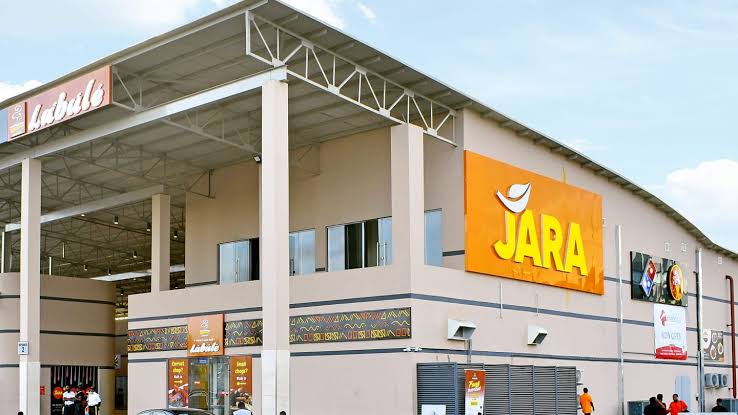If you are a remote worker or content creator in Lagos State, chances are that you may have to part with some of your earning as tax to the Lagos State Government.
In a synopsis document for the upcoming EKO Revenue Plus Summit, the Lagos State Government has unveiled progressive plans to generate N200 billion annually through taxes.
This will be achieved by expanding the income tax baseline to include remote workers and digital influencers operating within the state.
In the document, the government identified four core sub-sectors of the economy with significant revenue potential.
“The identified sub-sectors in order of priority are PROPERTY, DIGITAL ECONOMY, INFORMAL SECTOR, and CIRCULAR ECONOMY,” the document partly read.
These sectors, supported by ENERGY & IPPs as a catalyst for broader economic development, aim to achieve an additional IGR of about N2.73 trillion.
Through the digital economy, Lagos State plans to allocate N20 billion with a projected revenue of N750 billion. The revenue pillars include income tax, license & permit fees, FGN partnership for digital service tax, e-Govt services, profit & royalty, digital advertising, and content monetization.
What does this mean for remote workers, digital influencers, others?
Through the expansion of additional tax payers, the Resident Global Digital Citizen Tax Management System will manage taxes for remote workers, freelancers, gig workers, influencers, and shared economy operators.
While digital platform owners, e-commerce operators, shared economy platforms, online education platforms, marketplaces, and food delivery services, will undergo accreditation and licensing.
How Lagos plans to achieve the estimated N200bn revenue
The Lagos State Government has highlighted key revenue pipelines to achieve the estimated revenue through the digital economy sector. These pipelines includes:
- Income Tax Baseline Expansion: Lagos State plans to boost the number of direct assessment and presumptive tax payers. This initiative targets capturing 2 million practitioners including remote workers, freelancers, gig workers, influencers, and shared economy operators, and it is projected to generate an average of N100,000 each, resulting in N200 billion in revenue.
- Digitalization of Govt Services & Data Monetization: The state government aims to create a public data marketplace and data access licensing for data-driven products and services. Key initiatives include:
- Lagos DoVERIFY: Document validation and verification platform.
- VerifyME: Services for qualification, identity, criminal records, and KYC.
- Digital notary services.
- Lagos Credit Bureau: Digitalized portal for credit rating and status management.
- Lagos State e-Court Management System: For affidavits, agreement filing, court case directories, virtual arbitration, and dispute settlement. With over 5 million people requiring these services, the projected annual revenue is N50 billion.
- Lagos State Fintech HUB: The hub will cater to digital payments, mobile money, lending, insurance, transportation, leasing, hire purchase, trading platforms, exchanges, crowdfunding, and more, projected to generate N100 billion.
- Lagos State Software Development Center/Agency: This is focused on developing software to support critical sectors of the economy and industry SaaS platforms, this initiative aims to generate N150 billion.
- Lagos State Digital Economy Acceleration HUB (Lagnovation 100): With a 50% success rate, this hub is projected to bring in N100 billion.
- Lagos State Advertisement Network: The network includes the Lagos Street Ad Network, Lagos Digital Advertising Network, and a digitalized ad distribution and approval management platform, projected to generate N50 billion.
- Collaboration with FGN on Digital Service Tax (DST): Implementing DST for non-resident companies like Meta, Amazon, and Google is projected to generate N50 billion.
- Blockchain and Tokenization Agenda: Targeting a $500 million capitalization, this initiative aims to generate N100 billion.
- Gig Economy Acceleration Initiatives: This initiative is projected to generate N10 billion.
- Patented & Trademarked Event, Award, and Competition Licensing: By creating multiple event package licenses, Lagos State aims to earn through event rights licenses and sponsorship revenue shares. With 100 tickets on auction, the projected revenue is N5 billion to N10 billion.
- Entertainment BOX Partnership: In partnership with private partners, implementing a N500 entertainment tax with 2-3 million subscribers is projected to earn N10 billion to N20 billion annually.
- Content Aggregation Platform and Gateway: A gateway for content creators and users, monetized through subscriptions, advertising, sponsored content, and premium features.
- Lagos State Digital Schools Project: Targeting: 20,000 students at N50,000 per semester, this project aims to generate N1 billion.
Others are Lagos BPO and Open TechHub Project; Smart City Infrastructure and Services; Data Center and Cloud Service and Lagos State eSport and Online Gaming Project.
What is the EKO Revenue Plus Summit?
The Lagos State Government’s THEME PLUS 2024 agenda aims to initiate new revenue and investment opportunities through the EKO Revenue Plus Summit.
This is a three-day event to bring together key stakeholders to unlock sustainable and citizen-friendly revenue streams beyond traditional taxation.
The event is scheduled to hold on September 25th and 26th, 2024 at the Eko Convention Center, Lagos.


